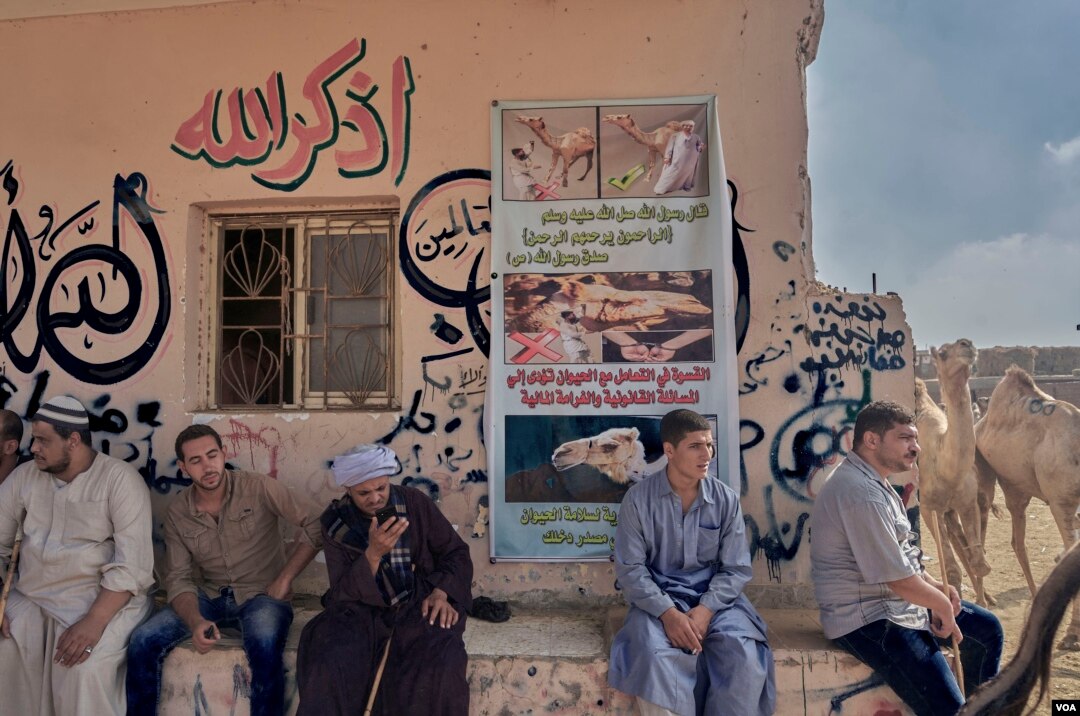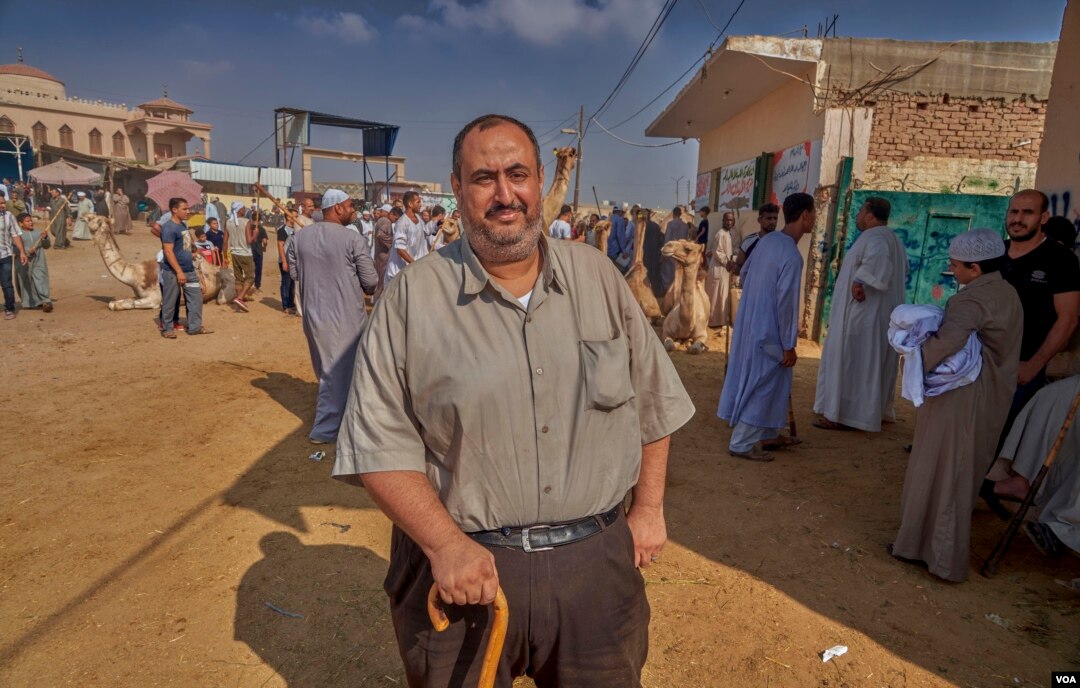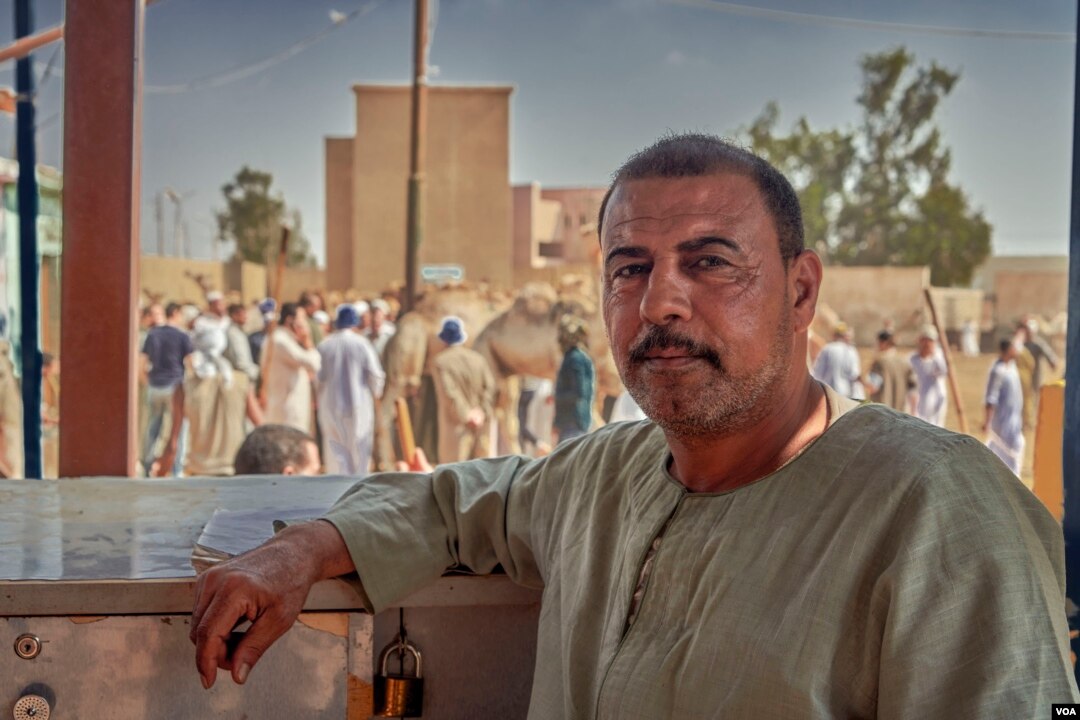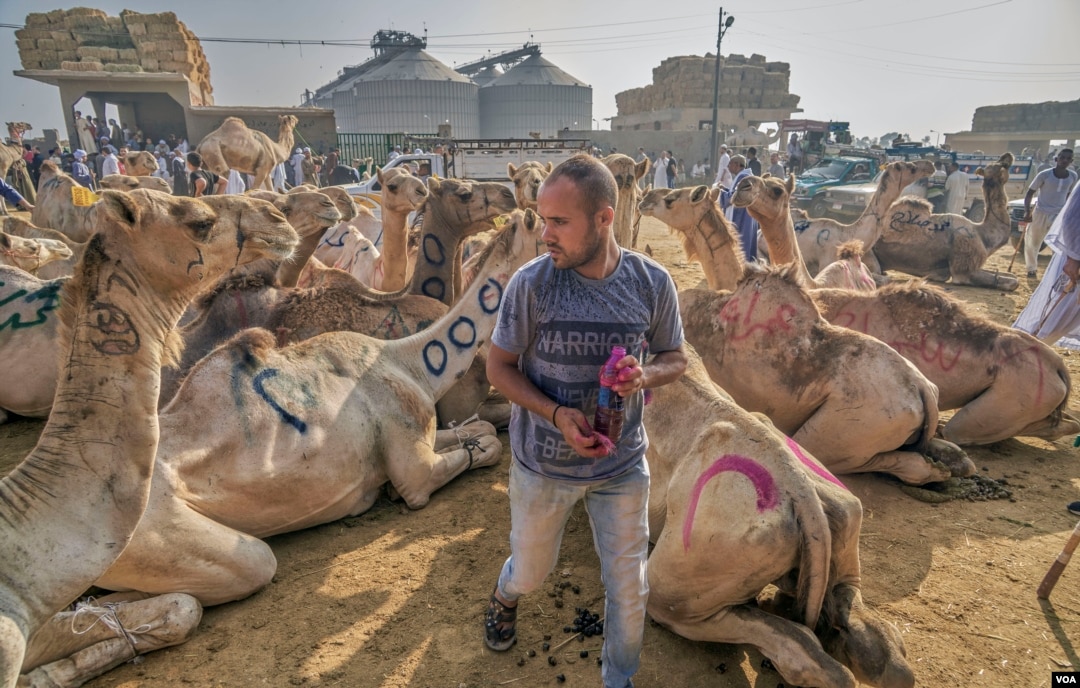Egypt Cracks Down on Abuse of Camels

Camel herders at the market sit below a poster warning against mistreatment of the animals. Some of the vendors, in response to growing criticism on social media, insist not all herders and sellers are the same. (VOA/H. Elrasam)

Camel is the meat of choice for many Egyptian Muslims at Eid. “I prefer camel meat because they have no sicknesses and are more tasty,” says Mohamed, 48, who came to Barqash to shop for a camel for the feast. (VOA/H. Elrasam)

Hajj Ahmed Soliman owns the camel market and says there are economic incentives to discourage mistreating animals. “Now, if a camel has lost an eye, its price drops.” He said camels that are injured and bleeding do not sell. (VOA/H. Elrasam)

Ayman, who identifies the camels with serial numbers and the names of their buyers, says there are other incentives to not abuse the animals. "Beating cause bruises, and bruises ruin the meat. I want to deliver the best to my clients." (VOA/H. Elrasam)
Despite the new controls, Abdul-Muhsin, who sells batons used to beat the camels in order to drive and control them, still does brisk business in the days before Eid. (VOA/H. Elrasam)
In the market, beating the camels is prohibited now. That, in some instances, has made the job more difficult for vendors and buyers who struggle to load the animals onto trucks. (VOA/H. Elrasam)
Youssef, 11, son of a camel vendor, has learned that tenderness works. "When this camel arrived, it was acting wild, so we put him on a leash, which hurt him. That is why I knit these soft cloths for him. Now he is quiet. He likes me.” (VOA/H. Elrasam)
Herders say that attending training and awareness sessions has made them more careful – and humane - in handling their animals. (VOA/H. Elrasam)
The new restrictions have prompted some camel traders to switch to cows and buffalos. Herders say the other animals are more obedient and easier to direct. (VOA/H. Elrasam)
Buyers take the camels home to prepare them for slaughter ahead of Eid, which in Egypt this year falls on Aug. 11, 2019. (VOA/H. Elrasam)

